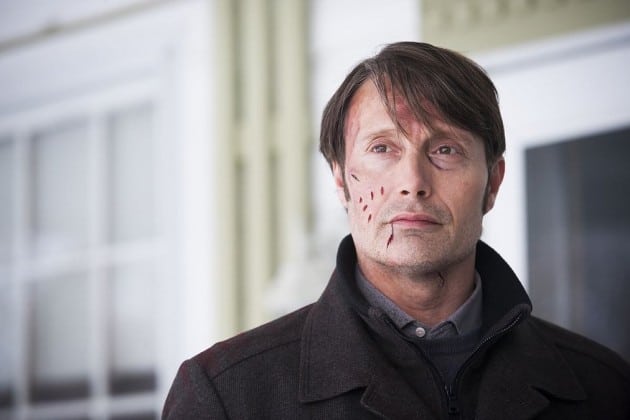
After three years and one of the most critically successful (if not highest-viewed) runs in modern television history, this Saturday marks the series finale of NBC’s Hannibal. After starting out as a seemingly unnecessary origin story for one of pop culture’s most well-regarded and appreciated villains, Hannibal quickly became the best crime show in television history. While providing one of the most intimate looks into the psychology of a monster, the show has managed to reinvent itself almost completely with every season on the air.
While the cast and crew are adamant that they will continue the story in some form at some point in the future, this week’s Season 3 finale looks to be the end of the well-loved show for now. As we prepare our hearts and souls for the end of a far-too-brief era, let’s take a look back at Hannibal‘s television history.
[Warning: SPOILERS for all three seasons of NBC’s Hannibal and the novels and films on which the show is based will follow.]

The Journey to the Small Screen
“You just came here to look at me. Came to get the old scent again. Why don’t you just smell yourself?” – Hannibal Lecter, And the Woman Clothed With the Sun… (Season 3, Episode 9)
Red Dragon. The Silence of the Lambs. Manhunter. Hannibal. Hannibal Rising. Words and phrases known the world over.
Since author Thomas Harris’s good doctor debuted in a supporting role in a crime thriller in 1981, the world has learned the names of the films and novels detailing the history of Dr. Hannibal Lecter, a former surgeon and psychiatrist who was eventually imprisoned for cannibalistic murders before escaping to live another day. In Harris’s first novel in the series, Red Dragon, Lecter is introduced after having already been committed for three years. In this first appearance, Lecter had an extremely small role, essentially only used to aid the author and audience in a psychological interpretation of Will Graham, the novel’s protagonist. Hannibal Lecter proved to be so popular with audiences, however, through the novel and 1986 film adaptation, entitled Manhunter, that Harris brought him back in a somewhat-larger role for the follow-up, The Silence of the Lambs. It was in this story, particularly in Jonathan Demme’s 1991 Oscar-winning feature film adaptation, that the public as a whole “fell in love” with the doctor, owing largely to the award-winning portrayal by Sir Anthony Hopkins (who took over the role after a vastly underrated performance by Brian Cox). Hopkins continued in this role in the 2001 sequel Hannibal and 2002 prequel Red Dragon (the second adaptation of the original novel), and by this point, Dr. Hannibal Lecter had become one of the most terrifying villains in the history of fiction. The “downfall” of the character, however, came in 2006 with the novel and film Hannibal Rising. While I personally love the story, many around the globe didn’t feel it necessary to witness the origin of the evil, feeling that Lecter worked better with the aura of mystery that surrounded him previously. After Hannibal Rising, the character faded away for a few years, allowing audiences to fondly remember the performances of old.
Around 2011, Katie O’Connell of Gaumont TV acquired the rights to Hannibal Lecter. By coincidence, she happened to be seated on a plane ride in front of her friend Bryan Fuller, creator of Dead Like Me, Wonderfalls, and Pushing Daisies. She told Fuller about acquiring the rights, and he proceeded to lay out a seven-season plan (later shortened to five or six) for a television adaptation that explored the psychological connection between Lecter and Will Graham based on a brief line in the novel in which Hannibal told Graham, “You’re more like me than you care to admit.” O’Connell invited Fuller to write a pilot script based on his ideas, and NBC ended up giving the series a 13-episode order, bypassing the pilot stage, based solely on the strength of Fuller’s script.
To help round out the primary crew for the show, 30 Days of Night director David Slade was brought on as executive producer (and director of the first episode of Hannibal), and chef José Andrés was brought on as a culinary consultant to advise the production crew on how the infamous doctor would prepare his food. For the show’s main cast, Hugh Dancy was cast first as Will Graham, followed by Danish actor Mads Mikkelsen as Dr. Lecter. Joining them would be Laurence Fishburne as the head of the FBI Behavioral Science division Jack Crawford, Caroline Dhavernas (who previously starred in Fuller’s Wonderfalls) as the gender-bent Dr. Alana Bloom, and Hettienne Park as Beverly Katz, a member of Crawford’s unit. With the cast and crew in place, NBC set a premiere date of April 4, 2013, for Hannibal‘s first season.
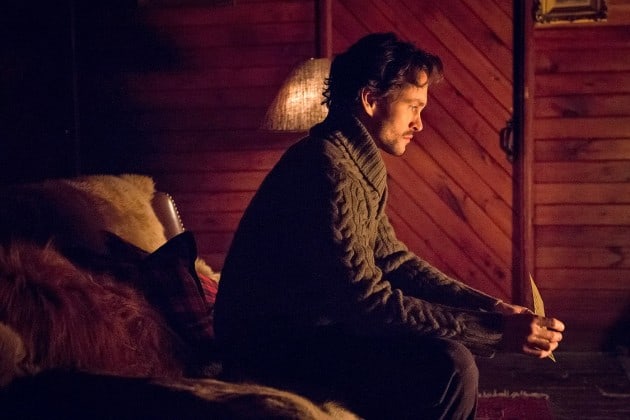
Winning Over the World
“I don’t find you that interesting.” – Will Graham
“You will.” – Hannibal Lecter, Apéritif (Season 1, Episode 1)
When it premiered, Hannibal debuted to solid ratings and largely positive reviews. While nowhere near the critical response that the show would eventually earn, critics and viewers alike approved of the portrayal of a pre-incarcerated Hannibal Lecter in a world that doesn’t yet know him for the monster that he is. While Dancy and Mikkelsen received a ton of the praise, a lot of love was given to the performances of Dhavernas’s Alana Bloom, Park’s Beverly Katz, and Kacey Rohl’s Abigail Hobbs, the daughter of Will Graham’s first victim Jacob Hobbs, the Minnesota Shrike, who would become a recurring character throughout the duration of the show. These performances, along with recurring characters Freddie Lounds (played in another gender-bent role by Lara Jean Chorostecki) and Dr. Bedelia du Maurier (played by Gillian Anderson), who were also introduced during the first season, led many to praise Hannibal‘s focus on strong female characters, a seeming rarity in the media. Particular praise, surprisingly, went to the way in which Fuller both used smaller existing characters, such as Hobbs, and introduced brand-new characters, such as du Maurier. Red Dragon, the primary source of the show’s characters, was largely male-centric, and this strong focus on females (including the gender-bent characters) led many in the beginning to appreciate the level of diversity that Fuller brought to the table.
The first season of Hannibal was largely based on a three-page section of the original novel that laid the groundwork for the connection between Hannibal Lecter and Will Graham. While being an original story that greatly expanded this relationship, everything boiled down to Fuller’s initial conceit that Graham and Lecter are more alike than Will would care to admit. Structurally, the first season of the show functioned as a procedural. Each episode featured an elaborately displayed murder that was solved by Will Graham with help from Dr. Lecter. Will receives therapy from Hannibal during this time, unaware that Hannibal is working to manipulate Will’s mental state, grooming Will to be more like him. The first five episodes of Hannibal were entirely procedural, and the overall story was kept on a much lower level. This structure began to change, however, beginning with Entrée, the sixth episode. While introducing yet another strong female in Anna Chlumsky’s Miriam Lass (as well as giving us our first treat of Eddie Izzard’s spectacular portrayal of Dr. Abel Gideon and Rául Esparza’s Dr. Frederick Chilton), this homage episode to The Silence of the Lambs began the rapid serialization of the show. While procedural staples would drive Hannibal throughout the season, the story elements began to take precedence beginning here.
The first season of Hannibal shows us Will Graham’s declining mental state, which we later discover is due to disease, as he assists Jack Crawford in solving these elaborate murders. Inklings of a romance begin between Will and Alana Bloom, but this is stifled by the incarceration of Will Graham after being framed by Dr. Lecter in Hannibal’s murders, including the seeming-death of Abigail Hobbs, who had become the surrogate daughter to Graham and Lecter. The season ended on a great sequence of Will being imprisoned in the same facility that would later house Hannibal himself while Lecter walked away freely.
While the first season of Hannibal was never an outright hit in the ratings, critics and audiences both grew to love the show throughout the 13-episode season, leading to the emergence of the Fannibals, a devoted group of fans that has become one of the most adamant fan cultures today. This season was also incredibly lauded for its production aspects, particularly those concerning the death tableaus. Every Fannibal has their own favorite death on Hannibal (my personal favorite is the cello), and the tableaus show the pure dedication that the team has to every artistic detail on the series. This devotion from the core fans, as well as the relative inexpense of the show, led to a somewhat surprising renewal of Hannibal for a second season on NBC.

Defining the Crime Thriller
“What you did to me is in my head, and I will find it. I’m going to remember, Dr. Lecter, and when I do, there will be a reckoning.” – Will Graham, Kaiseki (Season 2, Episode 1)
Season 2 of Hannibal, more or less, turned the show into what fans know and love. While procedural elements and the murders stayed a part of the show this season, the serialized nature became the primary drive. Season 2 was also split into two distinct story arcs, linked by the connective tissue of Hannibal Lecter’s attempted manipulation of Will Graham.
Throughout the first half of the season, Will is still imprisoned for the for which he was framed. One of the best changes from the source material comes here, as Will Graham is now well-aware of who and what Hannibal is. The realization that Hannibal is a cannibal that has been feeding his friends human meat is one of the most spectacular moments on the show, defined by the exemplary performance of High Dancy. Will is finally freed after it’s discovered that he was not responsible for the crimes, and he uses his newfound freedom to convince Jack Crawford of Hannibal’s guilt. The two form a plan to capture Lecter, and this plan makes up the second half of the season. Alana Bloom, however, is not as easy to convince, as she has now become Hannibal’s lover.
The second half of season 2 focuses on Will’s manipulation of Hannibal in an attempt to draw the psychopath out into the open. During this effort, though, Will manages to blend his psychology with that of Hannibal Lecter’s, becoming somewhat of an “equal antithesis” of the doctor. This development speaks directly to Lecter’s line from the Red Dragon novel, and it helps us see the story that Bryan Fuller had been building from the very beginning. This season also introduced us to fan-favorite characters Mason and Margot Verger, played by Boardwalk Empire‘s Michael Pitt and scream-queen Katharine Isabelle. These characters, present only in the novel Hannibal, had been established as having a long history with Dr. Lecter, and the absolute highlight of the season for me was getting to see these characters at an earlier point in the timeline. The actors brought an incredible element to the show and the story, and the knowledge of what fate would befall Mason felt like an absolute Hitchcockian play in every sense of the word. As expected, the portrayal of Mason’s fate was as gruesome as could be expected, and Will’s role in the outcome opened up a world of opportunity for the show to explore in its future.
The ending of Hannibal‘s second season provided one of the bleakest endings in television history, especially when you consider that the show wasn’t yet renewed when the episode was written. Luckily, though, we were granted with a third season, but it’s hard to overlook what the second season managed to accomplished. What had been regarded as an unnecessary origin story not much more than a year before had become the leading example of what a crime thriller should be. The season helped to provide the most intimate look at the psychology of evil that I believe has ever been shown on television, and the story was crafted in such a spectacular way that even the harshest of critics seemed to fall in love.
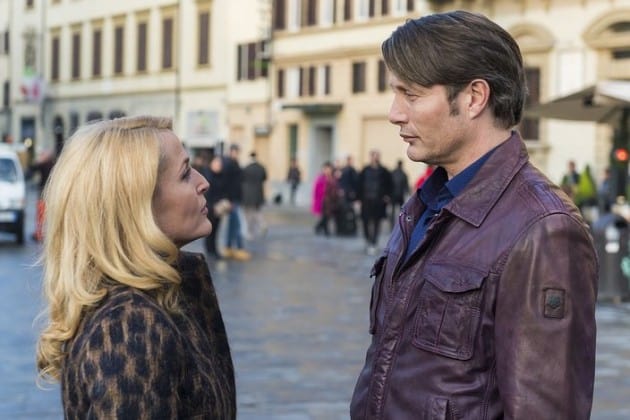
Reworking for Adaptation
“Hannibal’s not God. He wouldn’t have any fun being God. Defying God, that’s his idea of a good time.” – Will Graham, Primavera (Season 3, Episode 2)
Hannibal once again reinvented itself with its third season. Completely abandoning the procedural element of seasons past, the third season completely devoted itself to the serialized story that it wanted to tell. As with the prior year, Season 3 was once again divided into two distinct arcs. The first half of the season finally told the story of Hannibal Lecter’s capture and incarceration. While reworking ideas from Hannibal Rising and incorporating original plans based on the world that had been built on the show, this arc was largely an adaptation of the novel Hannibal.
Throughout this arc, we see Hannibal’s live with (now-series regular!) Dr. Bedelia du Maurier as he is on the run in Italy. The first episode of the season manages to set itself apart from the rest of the show by providing a focus on just those two characters. Through flashbacks, we learn about their twisted history, establishing du Maurier as a much more dramatic presence than we could have anticipated. Lecter’s adventures in Italy show us how well Fuller is able to take a source novel and rework it perfectly to his own universe, and we, as an audience, are treated to some of the most intricate storytelling that has ever been seen.
Building on the introduction of the Vergers in the latter half of the previous season, season 3 of the show also adapts Mason (now played by Joe Anderson) and Margot’s storyline from the novel, placing it (surprisingly appropriately, in a modern world) much earlier in the timeline than Thomas Harris planned. The Vergers are just as interesting as ever, and the context of the show allows for Alana Bloom to be highly involved in Mason’s plan for Hannibal.
Reworking two lengthy novels into seven episodes of a TV series seems like a mammoth task, but the Hannibal team proves just how adept they are at crafting a story. The production value of the show was as on point as ever, and the Italian setting provides such a different aesthetic than what the first 26 episodes provided. Performances were as great as ever, and critics could not stop raving about the show. Unfortunately, though, this is the time that NBC chose to cancel the show after over two seasons of declining viewership. While that was a major shame to the Fannibals, production of the season was already complete, so we all knew that Hannibal, were it unable to find a new home, would go out with a bang. The first arc ended with the capture of Hannibal Lecter.
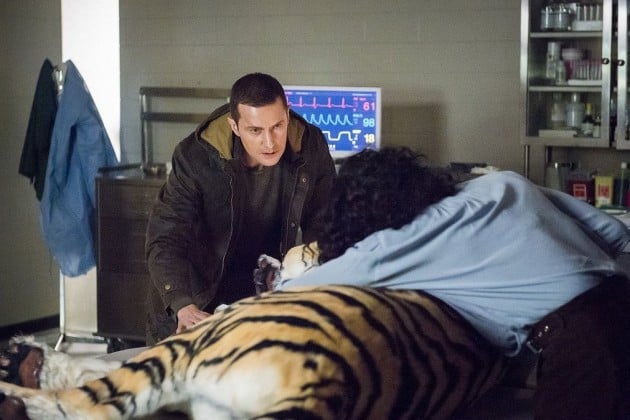
The Great Red Dragon
“I would encourage you as a friend not to walk through the door he holds open. It’s dark in the other side, and madness is waiting.” – Hannibal Lecter, The Great Red Dragon (Season 3, Episode 8)
When the show was first announced, the storyline that I was most excited about potentially seeing play out was Red Dragon. Out of all the events in the previous Hannibal Lecter mythos, that novel stood out the most to me as what great storytelling could achieve. Despite the show’s cancellation, we have, thankfully, been able to witness this story in the second half of the final season.
After the capture of Hannibal Lecter, the show jumps ahead three years. All of our characters are in vastly different places than they were before. The writers cleverly take the paths of the characters from the novel and adapt them to the history that was built through the course of the show, and it gives us a much different take on the events than we’ve gotten in any of the previous three interpretations of the story. Perhaps the most interesting (and completely believable) change is Alana Bloom being in charge of the hospital instead of Dr. Chilton. While Chilton still has a strong role in the season (despite only a handful of appearances), Alana being in charge of the confinement of Dr. Lecter makes complete sense after what has unfolded before on the show.
As expected, Richard Armitage’s portrayal of Francis Dolarhyde stole the show in this half of the season, and the length of a television show allows for such an intimate look at a character that just isn’t possible in a film. In addition to the fantastic performance of events that we expected, the arc has also changed and reworked plenty of things that have led to a much stronger story than just a simple adaptation would have allowed. By reworking events, Fuller has given the audience a true “sequel” to the story that he told in the first two and a half seasons. I know, without a doubt, that the final episode will send the series out with a bang and only leave us wishing for more.
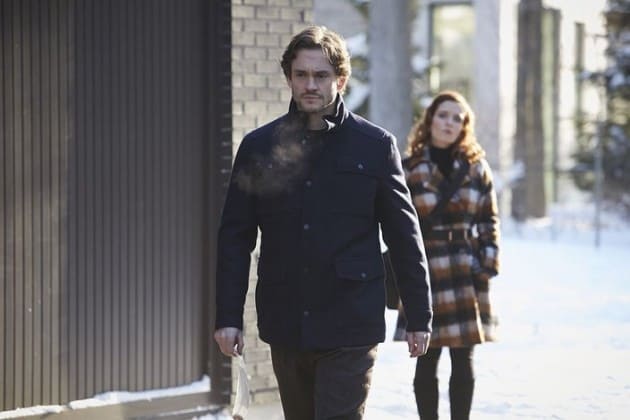
The Future
“If I saw you everyday forever, I would remember this moment.” – Hannibal Lecter, Dolce (Season 3, Episode 6)
While Hannibal‘s history on NBC is nearly complete, the cast and crew are determined to continue this story. Seeing the conclusion of Season 3 as a good place to pause, Fuller is unsure of where the characters will pop up next. While the ideal would be a fourth season somewhere, other options that are being discussed are a movie, a miniseries, or a novel. No matter what happens, though, and no matter when or where we see the continuing story of Dr. Hannibal Lecter, Hannibal has managed to become the quintessential example of a crime thriller. Blurring the line between television and pure art, Hannibal established its place in the history books as what can truly be possible when all pieces of a machine work together. As sad as I am that we won’t immediately get a continuation of this story, I will be forever grateful for what we have gotten. Hannibal will forever live in the hearts of countless Fannibals around the world, and new fans will discover the show and fall in love in the years to come.
The Season 3 finale of Hannibal airs Saturday, August 29, on NBC at 10/9c.
[Photos via NBC]
 Follow Us
Follow Us

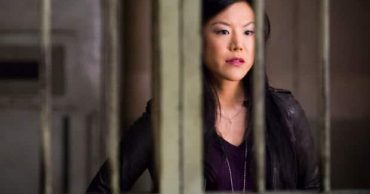
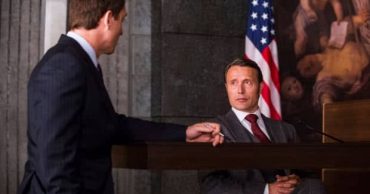
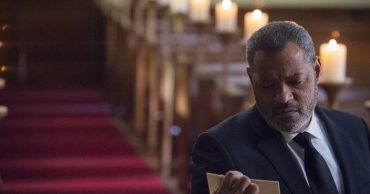


Great article. I think if the show isn’t renewed after the finale the Netflix will renew it in 18 months when the Amazon deal expires.
I have heard that hopeful speculation. That would be brilliant!
I think the franchise took its wrong turn with “Hannibal”, Rising just continued the plunge.
The series deviated from episodic storytelling even before Entree. Episode 3, Potage, began with Abigail waking up and everyone dealing with the aftermath. A body doesn’t turn up until late in that episode, and Will doesn’t “solve” it until the ninth episode.
Hannibal isn’t really assisting in criminal investigations in the first season. He’s acting as Will’s therapist, and Will talks about cases because that’s what’s on his mind.
The show may give more prominence to female characters than Red Dragon, but I don’t think it stands out relative to the modern TV average. If you asked TV critics to give their favorite female performances on TV, it would take awhile before any from Hannibal showed up.
So, now that it’s all over, how do you feel about the season and series as a whole? I think Fuller had a chance to elevate the Hannibal book material, but failed because he instead went further with the more ridiculous tone of it. There’s a lot of good stuff in the book(remember that Hannibal’s season one line to Gideon about it being a tragedy to be wasted is actually a repurposed quote from Clarice in that one). Hannibal has a strong psychological hold over Mason, and he really wins in the end because of his final words to him rather than with more gruesome antics. He gets in Margot’s head too and uses her as his agent, but at least the reader can understand that she already has her own desire for revenge. Fuller did admit to not liking Hannibal Rising, so I guess he should get credit for not really exploring it, but the little he did do with it felt like too much anyway. I still think everything with Will and the Hannibal/Will relationship in the first half was a complete disaster and led to the audience being deprived of the amazing “How did you catch me?” scene in the second half because Fuller unfathomably decided to not have Hannibal actually be caught.
I can’t comment much on The Red Dragon half. I got curious and watched the Abigail flashbacks. I already thought it was a mistake for her to be killed off the way she was and the flashbacks only solidified my opinion. It was interesting that there turned out to be no, “We’re all running away together.” plan. Abigail is scared when Hannibal tells her that Will called. At that point, Hannibal knows he had been betrayed by Will, but why would he have had a reason to hide the plan from her before he knew? It seemed like Hannibal only wanted Will to see her to taunt him, which is great, but, of course, I already know the follow through didn’t pay off-at least not for me.
I also don’t think seeing the episode will make me think Chilton being attacked by Dolarhyde instead of Freddie being killed by him was a good idea. I understand Fuller wanting himself and the other writers to be “mashup DJs” by adapting the book storylines out of order, but I don’t understand remixing characters(Freddie and Chilton, Chilton and Alana, Jack and Will, Will and Clarice). These characters are all canon and have plenty of material to work with, they shouldn’t have become interchangeable. As far as the major non-canon character, unless Fuller is saying that Hannibal finally broke Bedelia during their Florence escapades, in the second half he probably was just bringing her down to Hannibal’s level as a way of absolving him of what he did to her. Will should have presumably also been a weakling she wanted to crush when she saw how he was abused by Hannibal, but the truth was that she genuinely empathized with him because they were both traumatized by Hannibal. She even tells Will that he can survive what was being done to him. It’s too much retconning to handle, which is probably the one way I’d describe the third season.
“absolving him of what he did to her” What did he do? Are you referring to him making her a new Gideon in the post-credits scene?
I was referring to their relationship before the second half of season three. She considered herself traumatized because of what happened with her patient, which seemingly was going to be Hannibal’s fault. She also remains his psychiatrist even though she doesn’t want to(I guess because he doesn’t want to let her forget the patient), and while they’re on the run he forces her to “participate” in his crimes. She seemed barely able to function in Antipasto because of how scared she is of Hannibal. By having it turn out that she completely lied about what happened with the patient, it undoes the effect we’re supposed to believe Hannibal had on her. Now, we’re seemingly supposed to think that she’s(and maybe Fuller wants us to think the same of Will, Jack, and Alana) “as twisted as he is” instead of his victim.
I’ll probably be able to rewatch the two other seasons as well, but I’m not sure if their flaws will stand out more or less now that the show is over. Like you said, season three does have good bits. I thought Anthony Dimmond was an interesting character, even if the “broken heart” was eye-roll worthy. I also do want to see a some of Richard Artimage’s Dolarhyde and his relationship with Reba. Ralph Fiennes can still be enjoyed as Dolarhyde regardless of how people usually tend to feel about Red Dragon overall.
And thanks for going back and forth with me. Maybe we’ll run into each other in the comments for recaps of another series. There will at least be True Detective’s third season.
Again, I completely agree on the retconning with Bedelia’s patient. She didn’t always seem traumatized/terrified in season 3, and I thought that inconsistency was another shortcoming in characterization so common to that season. I guess it was supposed to be a surprise that she’s a sociopath and had a plan, although the plan itself wasn’t that important.
I think Abigail in prison could have been great. The precedent for that type of relationship for Will was set with Peter Bernadone, and I think she could have finally achieved peace as Peter did because at least she wasn’t being manipulated by someone who she thought was helping her.
Regarding Ratner’s film, it did at least have Molly kill Dolarhyde. Not having that isn’t something I hold against Manhunter(which I do love), because Molly killing him only really matters if they also have her leave Will(how is their relationship at the end of this season?). I wonder if there will ever be an adaptation that goes through with all of the book’s ending.
I didn’t know entirely what Peter’s situation was in his last episode, as they never resolved what Will & Hannibal did with his social worker.
I was hoping for Will to just wind up disfigured, divorced & depressed because no adaptation has had the guts to go that route, but for the same reason I wasn’t expecting it.
I can’t recall much about his final words to Mason. Wasn’t he just amusedly taking in Mason’s plans to eat him?
Oh, I meant in the book. Throughout the book, we only had Mason’s version of what happened to him. When he and Hannibal are reunited, Hannibal calls out Mason for not revealing that he didn’t just feed his own face to his dogs, but also ate some himself. Hannibal then, of course, accuses of him of enjoying it. To me, the show takes away from the psychological torture by having Mason instead embrace a cannibalistic nature. Book Mason enjoys being a horrible person too, but apparently only up to a point, and that’s the what Hannibal is able to use against him.
On the show, it was only gruesome antics(Cordell’s face being put on Mason’s), which would be fine if I thought the story was good enough to back it up. Pazzi(who was completely wasted on the show) had an arc in the book(and in Scott’s film) with a good mix of both, because he’s disemboweled, but Hannibal also needles him about the shame of his ancestor and threatens to eat his wife. Pazzi has to die not knowing if Hannibal will follow through. The show didn’t even have the wife threat!